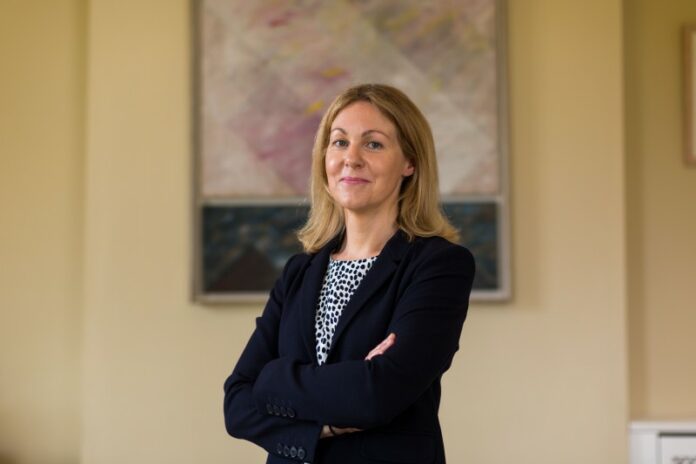Scientists at University of Limerick have created a testing solution for COVID-19 amid worldwide shortages of the crucial materials.
In response to the global shortage of reagents and extraction kits for COVID-19 testing, scientists at UL’s Bernal Institute, plus the departments of chemical and biological sciences at UL, joined forces with other research centres and institutes to source materials and prepare a testing solution, which has fallen short of supply.
The Lysis Buffer solution, which is critical for DNA extraction, was validated at University Hospital Limerick, where it is now being used.
Dr Edel Durack, Instrument Scientist at Bernal Bio Laboratories and a team of technicians from the School of Natural Sciences at UL, prepared the solution, which is required to generate results from patient swabs.
The solution can now be used for COVID-19 testing across Ireland. Pharmaceutical companies can now also rapidly produce batches of this solution to help meet the demand for testing patients.
Dr Durack explained: “This was validated by University Hospital Limerick against one of the commercially prepared products and we got the go ahead that it had passed validation, so we went back into the lab to prepare another volume. The pharma companies are looking after the upscaling of it, so they will be sourcing larger quantities of the reagents needed.
“We can only do a small scale here in the research labs, but we are waiting on another shipment and we will be back in the lab. We will make another small volume but it is definitely being used in the hospital and it is a stop gap, because there is definitely a week to week scramble for reagents,” she added.
The production of the Lysis Buffer is part of wider efforts by UL, which has set up a COVID Action group to coordinate the many activities in progress and emerging across campus in response to the pandemic.
The group is under the supervision of UL Vice President Research Professor Norelee Kennedy.
At a national level, UL staff are advising and informing government through the National Epidemiological Group, DPER, the National Advisory Group and the Department of An Taoiseach Research Group, on how best to manage the emerging impacts from COVID-19.
Local activities include staff working on the front line, various departments giving PPE to frontline workers, other staff inputting to national expert groups, 3d printing of other PPE for the HSE and also supporting the HSE to establish a field hospital on the grounds of the University.
“To help with the testing we are making Lysis Buffer in our labs. A team from across UL combined in a collaborative way to make this happen rapidly. Everyone is keen to help in any way that they can,” explained UL VPR Professor Norelee Kennedy.
“UL has an extensive group of volunteers contributing to all aspects of the COVID-19 crisis. Other initiatives are also under development, where collaborative programmes with colleagues from other HEIs and industry will be pivotal to making a difference in this challenging time,” she added.
A native of Ennis, Colin McGann has been editor of The Clare Champion since August 2020. Former editor of The Clare People, he is a journalism and communications graduate of Dublin Institute of Technology.



